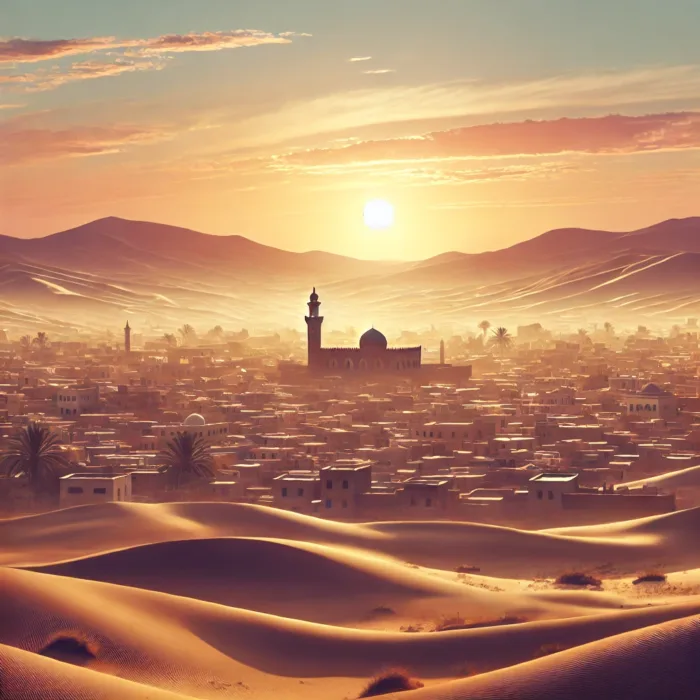Table of Contents
Introduction
The ninth article in the series “Era of the Rightly Guided Caliphs“ highlights how the early Islamic civilization, during the Rashidun period, emphasized human dignity, rights, and freedom. This focus stood in contrast to the material wealth and architectural splendor that defined later periods of Islamic history. Click here to explore the full series.
Islamic Civilization’s Lasting Impact: Perspectives from Western Scholars and Orientalists
Islamic civilization represents a remarkable chapter in human history, and the contributions of Muslims to the world are well-documented, acknowledged by both Muslims and non-Muslims alike. Many statements from Oriental scholars and Western historians—who were not Muslim—attest to the lasting influence of Islamic civilization.
For example, the British Orientalist Montgomery Watt remarks:
“Despite this, we Europeans stubbornly refuse to recognize the civilizational influence Islam has had on us. We sometimes minimize or even ignore the significance of Islam’s impact on our heritage. It is our responsibility, for the sake of fostering better relations with Arabs and Muslims, to fully acknowledge this merit. Denying or concealing it only reflects a false sense of pride“
This perspective is well-known, and interestingly, some Orientalists—such as the atheist Gustave Le Bon—expressed a unique wish: that Muslims had succeeded in reaching France and had not been defeated at the Battle of Martyrs’ Court, thus conquering Paris. He suggested that the reason Muslims did not return to northern France was not due to their defeat, but because they found the cold climate unsuitable for settling, unlike the warmer weather in Spain.
Le Bon imagines:
“Let us suppose, hypothetically, that the Christians had failed to repel the Arabs, and the Arabs found the northern French climate more tolerable than Spain’s, settling there permanently. What would have happened to Europe? Christian Europe, then in a state of barbarism, would have been transformed just as Spain was under the flourishing civilization of the Arab Prophet. Europe would have been refined, avoiding the major sins that stained its history—religious wars, the St. Bartholomew’s Day massacre, and the brutal injustices of the Inquisition—incidents that were foreign to Muslims and did not leave Europe drenched in blood for centuries“
Human Dignity at the Heart of Islamic Civilization: The Idealism of the Rightly Guided Caliphate
What is particularly striking in the discussions of Islamic civilization—especially by Western scholars and Orientalists—is their focus on material achievements. They often highlight the advancements in sciences, arts, architecture, decorations, domes, minarets, sculptures, artifacts, the spread of books, libraries, and the flourishing of education. These tangible accomplishments tend to capture most of their attention when exploring the topic.
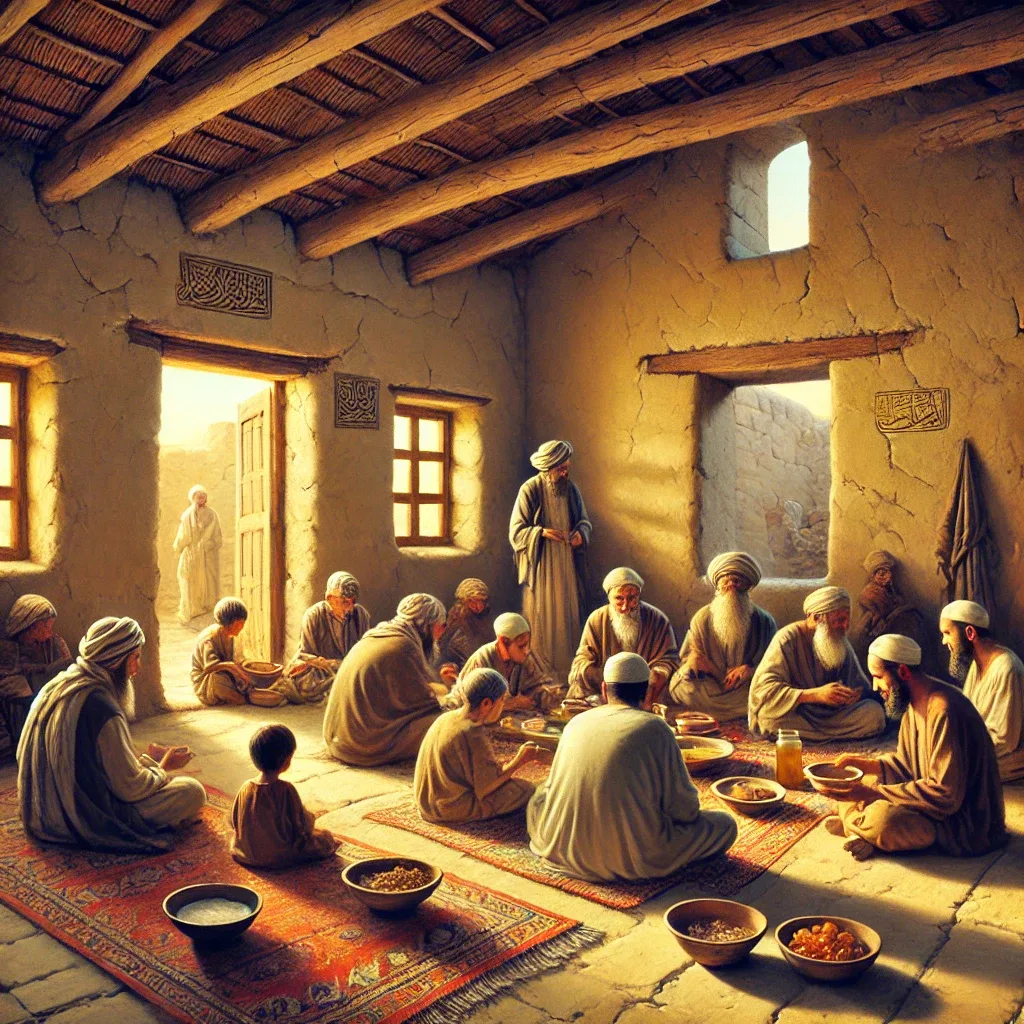
In contrast, Muslims are more drawn to the era of the Rightly Guided Caliphate. While Orientalists and Western scholars frequently discuss the Abbasid, Andalusian, Mamluk, Ottoman, and Mughal civilizations, as well as the achievements of Islamic states in Central Asia, Muslims feel a deeper connection to the period of the Rightly Guided Caliphate.
This attachment stems from the words of the Prophet Muhammad (Peace be upon Him) who said:
“You must follow My Sunnah and the Sunnah of the Rightly Guided Caliphs after Me…”1
and,
“The Caliphate after Me is 30 years“2
These sayings have ingrained the significance of the Rightly Guided Caliphate in the hearts of Muslims, shaping their understanding of Islamic civilization.
Why is this era so significant? During the time of the Rightly Guided Caliphate, Islamic civilization reached its ideal form. It was a civilization that prioritized human dignity above all else. This era—known for its focus on the human being—was a time when human appreciation, honor, and respect reached their highest possible standards.
In this period, dignity was abundant. A person could approach the Caliph, confront him, or even challenge him without fear of losing their rights. An example of this is the famous exchange between Umar ibn al-Khattab and the man who killed his brother, Zaid. When Umar asked him to account for his actions, the man boldly replied, “Will that prevent me from any of my rights?” To which Umar responded, “No“. The man then said, “Then love or hate as you will; only women grieve over love“.
Islamic civilization’s connection to the Rightly Guided Caliphate is marked by this profound respect for human dignity. For instance, when comparing the security of the state to the security of its people, the Rightly Guided Caliphate placed a higher priority on the people’s security than on that of the authority. Unlike in many political systems, where the security of the ruling authority takes precedence, in Islamic civilization, the focus was on ensuring the safety and well-being of the people first.
Umar ibn Al-Khattab’s Leadership: Upholding Justice, Forbearance, and Human Dignity
During one of his pilgrimages, Umar ibn Al-Khattab (may ALLAH be pleased with him) addressed the people and clarified the role of the governors he appointed to oversee different regions. He said:
“O people, I have appointed these governors truthfully over you. I did not employ them to harm your bodies, shed your blood, or take your wealth. I sent them to teach you about your religion and your Sunnah. If anyone experiences otherwise, let them bring it to my attention. If anyone has a grievance against any of them, let them stand up so I may ensure justice, for I have seen the Messenger of ALLAH (Peace be upon Him) enabling justice even against himself“
In another address during a pilgrimage, Umar emphasized the same principle:
“Know that no forbearance is more beloved to ALLAH and more broadly beneficial than the forbearance and gentleness of a leader. Likewise, no ignorance is more detestable to ALLAH and more harmful than the ignorance and foolishness of a leader. If any of my governors wrong someone and their grievance reaches me, and I fail to address it, then I have wronged them myself“
These statements reflect that the primary mission of governors in the Islamic state was not to consolidate authority but to improve the well-being of the people—spiritually, morally, and socially.
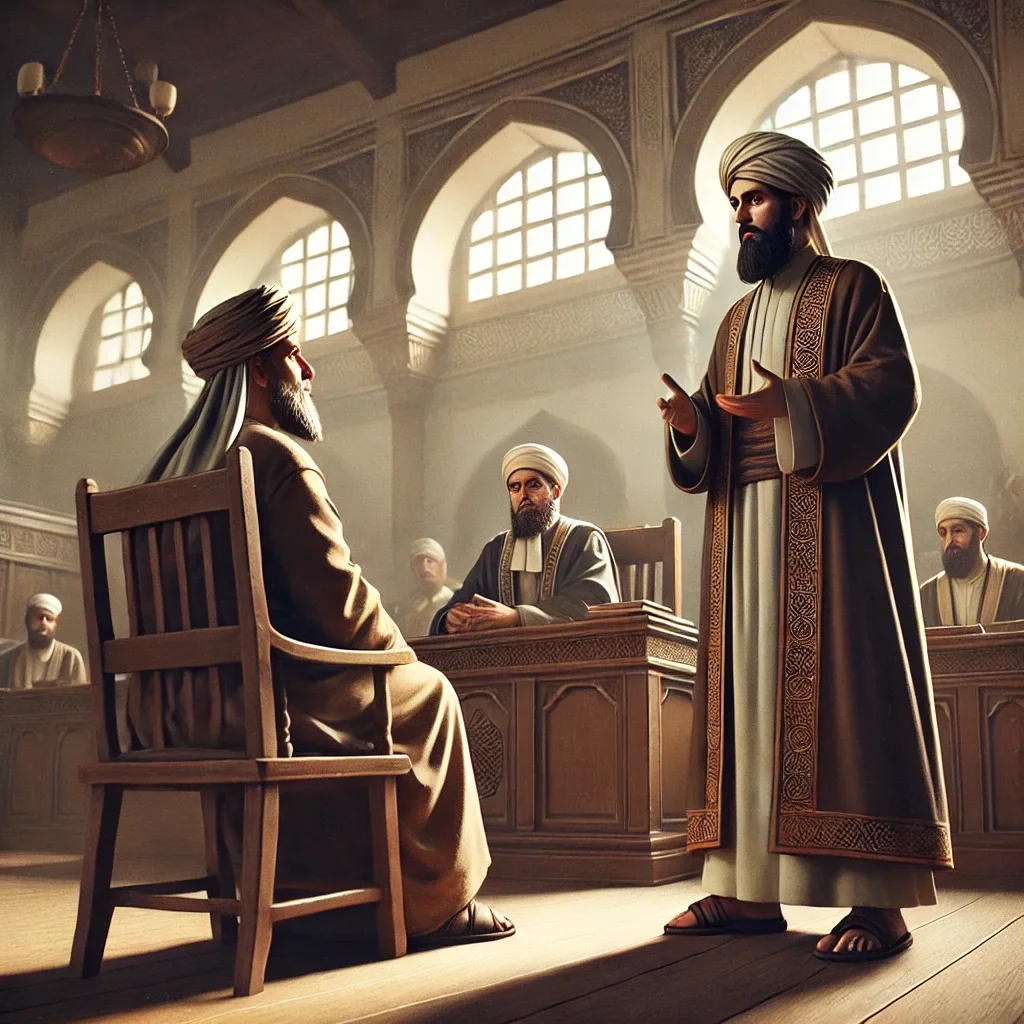
This principle was evident even in Umar’s dealings with his own safety. Abu Lu’lu’a Al-Majusi, who would eventually assassinate Umar, openly threatened him by saying, “I will make for you a mill that the Arabs will talk about”. Umar recognized this as a threat and responded, “The slave has threatened me“. Yet, he did not exile him or restrict his movements. Abu Lu’lu’a continued to live in Medinah, pray in the first row behind Umar, and tragically succeeded in carrying out the assassination.
The Rightly Guided Caliphs: Prioritizing People’s Security Over Authority’s
Uthman ibn Affan (may ALLAH be pleased with him) was once entering the mosque when he noticed a man moving in a way that seemed suspicious. Sensing danger, he said to those around him, “Look at that one“. The man was seized, and it was found that he was carrying a dagger. Uthman calmly asked, “What did you intend?” The man replied, “I intended to kill you“. Uthman, in his usual calm manner, responded, “Woe to you! Why would you kill me?” The man explained, “Your governor in Yemen wronged me”. Uthman, with wisdom, replied,
“Why didn’t you bring your grievance to me so I could address it? If I fail to do justice, then consider what you will do next“
Turning to those around him, he asked, “What do you think?” They said, “O Commander of the Faithful, this is an enemy whom ALLAH has enabled you to confront!” Uthman, however, responded,
“Rather, he is a servant who intended a sin but failed to carry it out“
He pardoned the man, though he required that someone vouch for his conduct and that he not enter Medinah while Uthman remained the Commander of the Faithful.
Similarly, Ali ibn Abi Talib (may ALLAH be pleased with him) experienced a grave act of violence. Abd al-Rahman ibn Muljam, a member of the Khawarij—a faction that had rebelled against Ali and fought him—was able to enter the mosque and stab him. This act of violence, too, highlighted the challenging realities of leadership during the time of the Rightly Guided Caliphs.
From these incidents, we see that the fundamental bias of Islamic civilization was toward the security and well-being of the people, rather than the security of authority. It is perplexing and even troubling that some secularists today criticize the Rightly Guided Caliphs, pointing to the fact that three of them were killed as evidence that their rule was not properly guided.
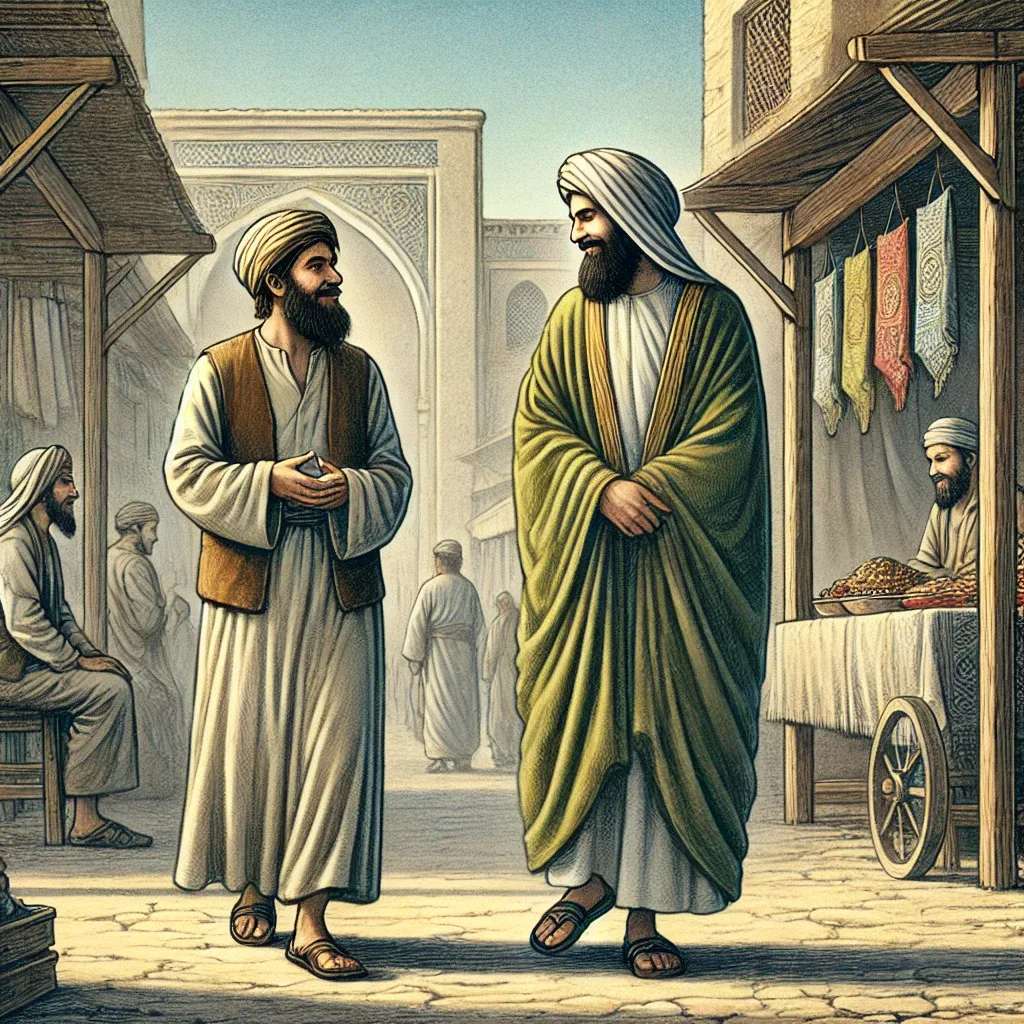
The reality, however, is quite the opposite. The Caliphs were killed precisely because they upheld the values of freedom and the protection of people’s rights. They prioritized the security of the people over their own personal safety. The Caliphs’ openness and the extensive freedoms they granted were, in fact, what made them vulnerable. Those who criticize them fail to recognize that the very freedom and justice they promoted left them exposed to such threats.
This contrast becomes even clearer when we reflect on our own times, where, under the guise of protecting national security or preventing assassination attempts, countless people are killed, entire nations are devastated, and basic human sanctities are violated. In such times, the leadership of the Rightly Guided Caliphs stands as a profound example of prioritizing the rights of the people above all else.
Islamic Civilization’s Core Values: Human Dignity, Freedom, and the Rejection of Materialism
The reality is that the Rightly Guided Caliphs placed a greater emphasis on human dignity and security than on the security of authority itself. The freedom granted to people in the Islamic system—freedom that was not offered as a mere favor, but as an integral principle—ensured their safety and security, even if this sometimes came at the expense of the authority’s own security.
Another key aspect of Islamic civilization’s prioritization of human welfare is its focus on dignity and honor over material wealth and luxury. The era of the Rightly Guided Caliphate ended without the Muslims constructing grand palaces, monumental buildings, or indulging in the lavish lifestyles that often define other civilizations. While researchers may marvel at the architectural achievements of later Islamic periods, the foundational principle of early Islamic society was a bias toward human dignity over material grandeur.
A society where monumental buildings and reinforced structures do not dominate the landscape, where homes may be made of mud, stone, or tents, yet where the people possess an abundance of dignity—that is the essence of an Islamic society. It is not the physical structures that define an Islamic society, but the moral and spiritual integrity of its people. A society cannot truly be called Islamic if towering skyscrapers stand while its people are humiliated, oppressed, or degraded, either materially or morally.
This distinction is crucial, especially when we consider the politics and behavior that stem from materialistic values. For example, those with a purely materialistic outlook might struggle to accept that a revolution could dismantle the architectural and structural marvels of a country. They would prefer to preserve the physical form of the country—its buildings and institutions—even if it means allowing tyranny and despotism to persist. This bargain often forces people to choose between living in humiliation under the shadow of these material achievements or witnessing the destruction of their country.
The Rightly Guided Caliphate: A Legacy of Human Dignity Over Material Wealth
The reality is that human nature naturally favors dignity and honor over the pursuit of material wealth, buildings, and other forms of material civilization. Every story of liberation begins with the suffering and hardship endured by a people—whether it’s hunger, fear, or the trauma of oppression. These people are willing to sacrifice material wealth, even if it means the destruction of buildings and structures, in exchange for the priceless freedom from occupation or tyranny. The cost of liberation is often the destruction of physical manifestations of civilization, only to rebuild them anew, free from oppression.
This is the story of nations: they are willing to sacrifice material possessions—buildings, infrastructure, and other symbols of material civilization—in the pursuit of freedom, dignity, and honor. The era of the Rightly Guided Caliphate ended without the Muslims constructing massive buildings or skyscrapers, and this was not their primary concern. Instead, their focus was on cultivating a society that prioritized the establishment of a dignified human being, one whose freedom, security, and worth were protected and upheld.
Therefore, while later periods of Islamic civilization—such as the Abbasid, Mamluk, Andalusian, Mughal, and Ottoman eras—produced architectural marvels and other wonders, these periods are not the primary reference point for assessing the true legacy of Islamic civilization. Rather, the measure of Islamic civilization is rooted in the values and principles established during the era of the Rightly Guided Caliphs.
This is why Muslims and Islamic movements calling for a renaissance today are more connected to the simplicity and values of the Rightly Guided Caliphate than to the grandeur and luxury of the Umayyad and Abbasid periods. Despite the material wealth and architectural expansion of those later eras, the true essence of Islamic civilization, according to its founding principles, is found in its bias toward human dignity and freedom over the accumulation of material wealth and grand structures.
Justice and Integrity in the Rightly Guided Caliphate: The Foundation of a Dignified Society
One clear example of this bias toward human dignity and justice is found in the judicial practices during the Rightly Guided Caliphate. In that period, people interacted with one another with truthfulness, honesty, and chivalry, creating a society in which disputes were rare. The competitive, materialistic views that often dominate other societies and fuel unnecessary conflicts were absent among the Muslims.
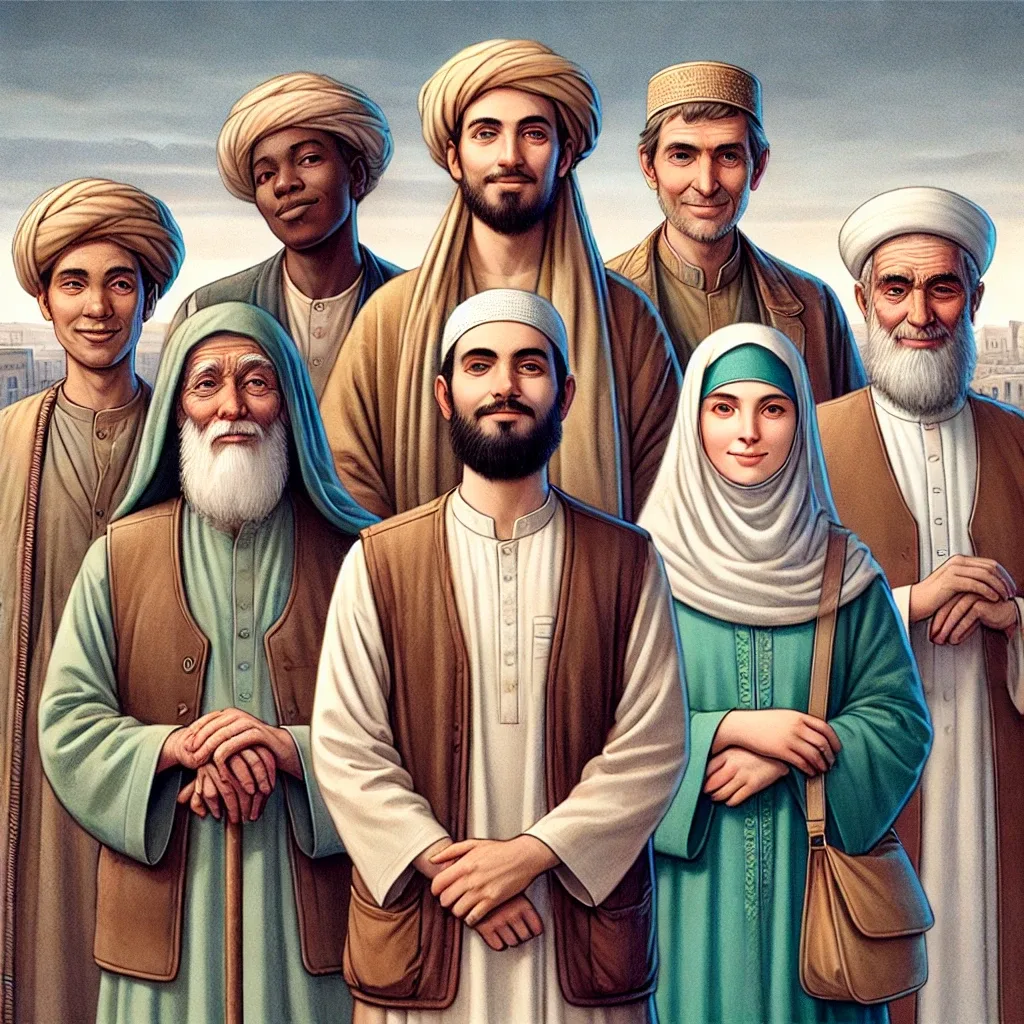
For instance, when Umar ibn Al-Khattab (may ALLAH be pleased with him) took over the judiciary during Abu Bakr’s era, he found that for an entire year, no one came to him with a dispute. This was because the people were living in a state of such advancement in terms of justice and moral integrity that they didn’t need the judiciary to resolve their conflicts.
Similarly, Sulaiman ibn Rabi’ah, the first judge to oversee Kufa, experienced the same phenomenon. An eyewitness reported that he visited Sulaiman’s house for forty days, but never found anyone there seeking judgment. This absence of conflict demonstrated the high level of integrity and fairness in society at that time.
Upholding Justice Above Authority: The Rightly Guided Caliphs’ Commitment to Fairness and Human Dignity
Even when disputes arose during the time of the Rightly Guided Caliphs that required judgment, they were handled with the utmost care and fairness, often even if it meant ruling against themselves.
For instance, once, Umar ibn al-Khattab had a dispute with Ubayy ibn Ka’b, and they went to Zayd ibn Thabit for a judgment (may ALLAH be pleased with them all). As they entered, Zayd immediately stepped aside from the place where the judge normally sits and offered the seat to Umar, saying, “Here, O Commander of the Believers“. Umar, however, gently corrected him, saying,
“You have made a mistake in the beginning of the case; you should have placed me against my opponent“
When Ubayy made his claim and Umar denied it, Zayd wisely suggested that Ubayy release Umar from the oath, as it is generally understood that the burden of proof lies with the one making the claim. However, Umar swore by ALLAH that he would not be released from the oath and took his own oath. Afterward, Zayd ruled fairly between them. Despite this, Umar later expressed that Zayd should not continue as the judge, having seen how carefully he had distanced himself from his role as a judge in the case.
On another occasion, Umar was negotiating to buy a horse. Upon mounting it, he discovered that the horse was defective. The seller refused to take it back unless Umar either bought it or returned it in its current condition. The judge, Shuraih, ruled in favor of the seller. Umar accepted this decision, saying,
“By ALLAH, this is true justice”
and then appointed Shuraih as a judge in Kufa, demonstrating his respect for fairness even when it was not in his favor.
Even in the face of rebellion and conflict, both Uthman and Ali (may Allah be pleased with them both) refrained from using their authority to impose judgments. Instead, they upheld justice in all matters based on fairness and a commitment to the truth, showing how the Rightly Guided Caliphs valued justice above all else—even over their personal interests or authority. This restraint and dedication to justice were key features of the Islamic civilization during their time, reflecting the principle that justice is paramount, no matter the position or circumstance.
Conclusion
Through all these examples, the bias of Islamic civilization toward humans, rather than material accomplishments, becomes clearly evident. The era of the Rightly Guided Caliphate was truly the era of the human being—a time when society was abundant in rights and justice, even though it lacked the material markers of superiority, prosperity, and grand construction that characterized later Islamic eras.
Islamic civilization, when evaluating periods marked by material wealth and grandeur, has a more favorable judgment of the Rightly Guided Caliphate, not because of the absence of material achievements, but because the human beings of that era were more esteemed in terms of justice and dignity. Thus, the true measure of Islamic civilization lies not in its material accomplishments, but in its commitment to upholding human dignity, justice, and rights.
I ask ALLAH, the Blessed and Exalted, to teach us what benefits us, to benefit us with what HE has taught us, and to increase us in knowledge.
Sources:
- Mohamed Elhamy. محمد إلهامي | عصر الخلافة الراشدة | 9. الإنسان قبل البنيان. YouTube Video.

